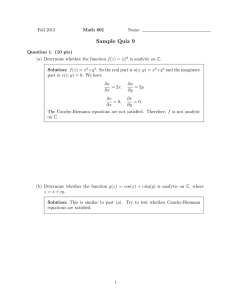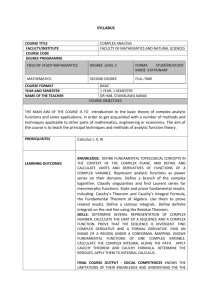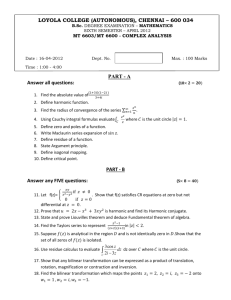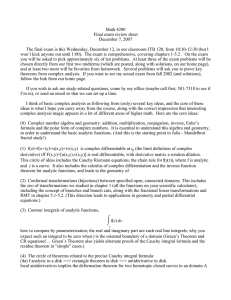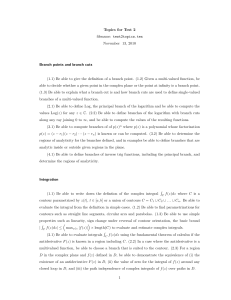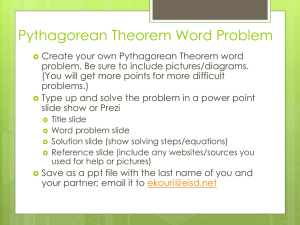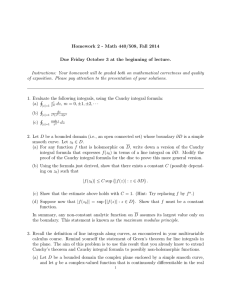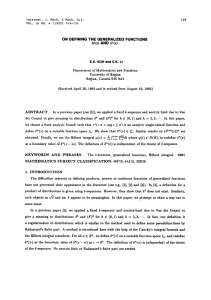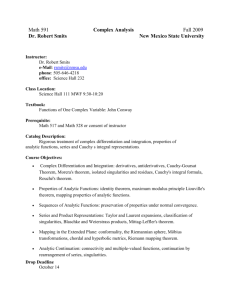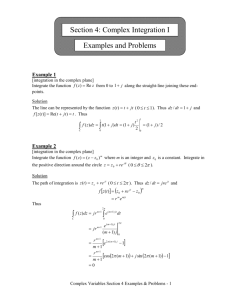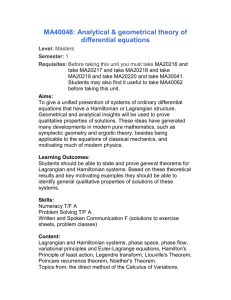San Jose State University
advertisement
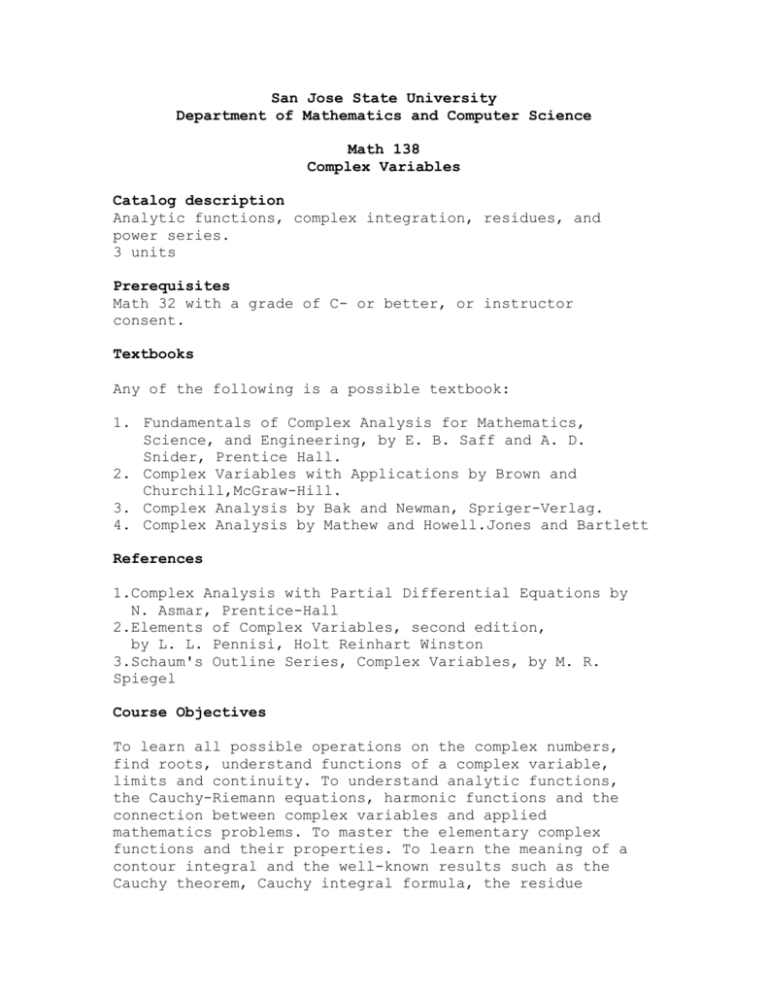
San Jose State University Department of Mathematics and Computer Science Math 138 Complex Variables Catalog description Analytic functions, complex integration, residues, and power series. 3 units Prerequisites Math 32 with a grade of C- or better, or instructor consent. Textbooks Any of the following is a possible textbook: 1. Fundamentals of Complex Analysis for Mathematics, Science, and Engineering, by E. B. Saff and A. D. Snider, Prentice Hall. 2. Complex Variables with Applications by Brown and Churchill,McGraw-Hill. 3. Complex Analysis by Bak and Newman, Spriger-Verlag. 4. Complex Analysis by Mathew and Howell.Jones and Bartlett References 1.Complex Analysis with Partial Differential Equations by N. Asmar, Prentice-Hall 2.Elements of Complex Variables, second edition, by L. L. Pennisi, Holt Reinhart Winston 3.Schaum's Outline Series, Complex Variables, by M. R. Spiegel Course Objectives To learn all possible operations on the complex numbers, find roots, understand functions of a complex variable, limits and continuity. To understand analytic functions, the Cauchy-Riemann equations, harmonic functions and the connection between complex variables and applied mathematics problems. To master the elementary complex functions and their properties. To learn the meaning of a contour integral and the well-known results such as the Cauchy theorem, Cauchy integral formula, the residue theorem. To understand the convergence of power series and Laurent series, and to be able to compute real definite integrals by using residues. Student Outcomes A student should be able to 1.Add,subtract,multiply,divide and conjugate complex numbers. 2.Solve equations in complex form. 3.Use DeMoivre's theorem to derive trigonometric identities. 4.Evaluate limits of complex functions. 5.Find the conjugate of a complex function. 6.Derive the Cauchy-Riemann equations. 7.Solve equations involving the elementary complex functions. 8.Use Cauchy theorem and Cauchy integral formula to evaluate integrals. 9.Find the Taylor series expansion of analytic functions. 10.Find the Laurent series of a functions of a complex variable. 11.Use the residue theorem to evaluate integrals. Outcome Assessment Two exams and a comprehensive final.Quizzes. Numerous homework problems are assigned and sometimes graded. Topics 1. Complex Numbers: Algebra of complex numbers, representation Of complex numbers, vector and polar forms, powers and roots Of equations 2. Analytic Functions: Functions, limits, continuity, analyticity,Cauchy-Riemann equations, harmonic functions. 3. Elementary Functions: Exponential, trigonometric and hyperbolic functions, logarithmic functions, complex powers, inverse functions. 4. Complex Integration: Contours, contour integrals, independence of the path, Cauchy's theorem, Cauchy integral formula. 5. Series: sequences and series, Taylor series, power series,Convergence, Laurent series, zeros and singularities. 6. Residue theory: The residue theorem and its applications. Chapter Topic 1 2 3 4 5 6 Complex Numbers Analytic Functions Elementary Functions Complex Integration Series Residue Theory Test Total Prepared by: Samih Obaid April 2012 Number of Lecture Hours 7 7 6 8 8 5 4 45
